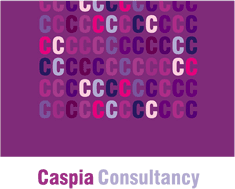This week’s blog reproduces parts of, and adds some of my own thoughts to a thoughtful blog from Brian Jacobs, on a subject that is very close to my heart, as regular readers will know – misogyny.
Brian says “The more I look around, the more I read our trades, the more research I see the more I come to the conclusion that the ad business is not an industry at ease with itself. Doing strange things. Making decisions based solely on media metrics. Ignoring the biggest issues”.
Last week an agency strategist called Zoe Scaman wrote a remarkable piece on Twitter called ‘Mad Men. Furious Women’ about misogyny in the ad business. It’s a tough read, but if you haven’t read it, you should. I don’t know Zoe but to write about what happened to her must have taken extraordinary strength and courage. She’s empowered others to come forward with similar stories. And she has had to put up with the inevitable pile-ons from those trying to make light of what happened to her. It’s true that almost every woman I’ve ever met in our industry has similar stories. I’ve not come across one as dreadful as Zoe’s. Those from Brian’s era and my own (I worked in advertising from 1977 to 1993) were and are too prepared to shrug these things off. They saw it as an inevitable consequence of the ‘all lads together and sometimes we go a bit mad’ culture. It was not OK; it is not OK and if it takes the terrible extremes of Zoe’s and others’ stories to make the industry face up to this and do something then it’s about time.
There’s a culture that still, even today often seems to put our industry’s priorities as constantly glorifying the extravagant (boasting about the hours worked, the alcohol consumed) ahead of celebrating the business benefits that great work brings. The extravagancies conflict with several uncomfortable facts.
As we all know, right now consumers don’t like ads much, and those they like least, appear on the fastest growing (in ad revenue terms) media forms (channels). Yet we’ve convinced ourselves, via the modern equivalent of snake oil that an ad exposed for 2 seconds is worth even discussing in the same breath as an experience that lasts maybe 15 times as long. Then we’ve fallen for the trick that has likes and shares as worthy objectives even though study after study concludes that alone they contribute zero to any positive brand building.
We shake our heads about the paucity of great journalism, but then act as if we play no part in the fact that today journalists are judged not by the impact their stories have on society but by how many clicks they generate. Apparently, we think it’s OK to support platforms that allow abuse of those whose opinion leads them to speak up against our own favourite but unsubstantiated theories. Even when the facts show we’re wrong. Abuse equals likes and clicks. So that’s alright then.
Why is this OK? Why do we keep supporting the channels that host these lies and abuses? What if the ad business pressed Twitter to only allow accounts with an identifiable owner? Isn’t accountability a good thing?
To be clear neither Brian nor I are in favour of boycotting legitimate channels that express a different point-of-view to our own. Advertisers should be free to advertise wherever they like; our job is to make sure their decisions are well-informed based on whatever knowledge and experience we may have.
Abdicating from that responsibility, ignoring the signs we’re being sent from consumers that certain elements of what we do are not appreciated and thus don’t work, is not indicative of an industry at ease with itself. That knows what it’s doing and appreciates its true worth.
Zoe Scaman appears to be an immensely brave and principled woman but she shouldn’t have needed to prove that. The men who abused her behaved obnoxiously displaying an arrogance, a failure to think of anyone except themselves. What happened to her and to many others is of course at a level far, far above moaning on about a few media numbers.
But what is concerning is that the selfish behaviour Zoe exposes is mirrored, even if only in shadowy outline as opposed to in harsh high definition in so many areas that we touch that we should all take heed and ask ourselves how we can make things better.
Even if all most of us can do is (compared to Zoe) minimal and at the margins.
Read this blog from Brian and others here on The Cog Blog.

